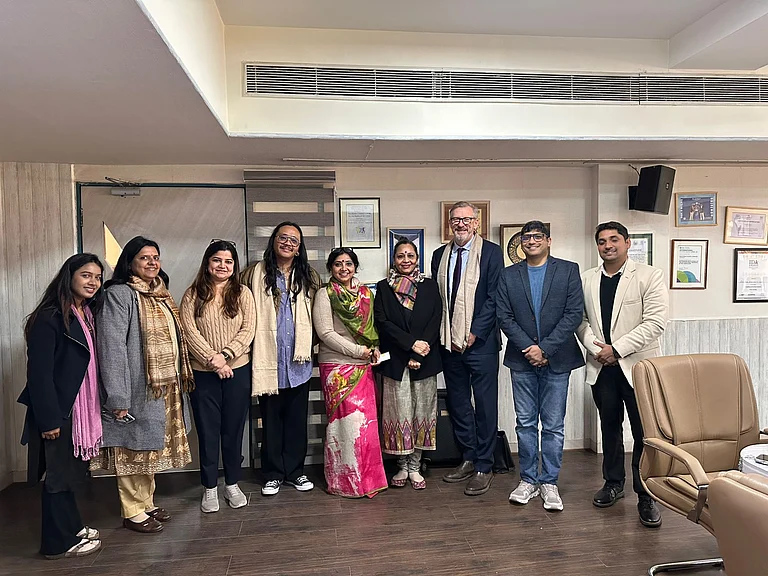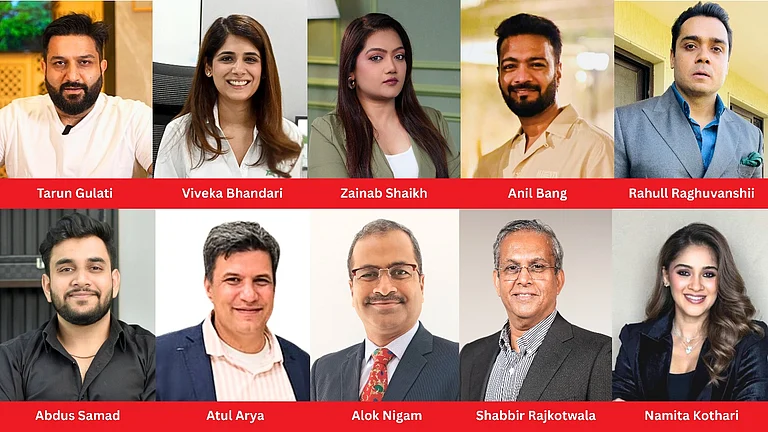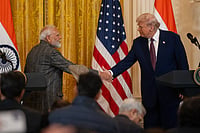Producing everything from salt to cars, electronics and entertainment, the Tata Group has been a part of the Indian consciousness for scores of years now.
This behemoth in the Indian business landscape has, over the years, built an image of trustability, integrity and visionary leadership that is primarily projected by the family that has helmed it. A prime example of this is Ratan Naval Tata, who was the Chairman of Tata Sons from 1991 to 2012. Under his leadership, the Tata Group saw unprecedented growth domestically and internationally. He led the companyto key acquisitions, including Jaguar Land Rover, Tetley Tea, and Corus Steel, which solidified the group’s presence on the global stage.
Over the course of more than 150 years, the Tata family has produced leaders who have profoundly shaped India's industrial sector. The passing of Ratan Tata on October 9 has brought renewed focus to the legacy of the Tata family and its future direction.
The Tata family’s story began with Nusserwanji Tata, born in 1822 in Navsari, Gujarat. Raised in a priestly Parsi household, Nusserwanji’s early life revolved around religious rituals and the study of the Zend Avesta, the sacred Zoroastrian texts. However, despite his religious upbringing, Nusserwanji chose to pursue a career in commerce—a move that would mark the start of one of India’s most influential business dynasties.
After moving to Bombay (now Mumbai), Nusserwanji entered the cotton trade. His foresight in seizing opportunities, especially during the American Civil War (1861–65), which disrupted global cotton supplies, enabled him to achieve success early on. This decision laid the groundwork for the Tata family's future ventures. Nusserwanji’s vision extended to his son, Jamsetji Tata, whom he sent to Hong Kong to gain international exposure. This decision would prove instrumental in shaping Jamsetji’s business acumen and ambition.
Jamsetji Tata, born in 1839, is widely regarded as the father of Indian industry. After working alongside his father in the cotton trade, Jamsetji set out to establish his own industrial ventures. His first major success came in 1869 when he purchased a defunct oil mill in Bombay and converted it into a cotton ginning mill. Named Alexandria Mill, the venture was successful, and Jamsetji sold it at a profit within two years.
In 1877, he established Empress Mills in Nagpur, India, marking the Tata Group’s foray into manufacturing. However, Jamsetji’s vision extended far beyond cotton. He dreamed of establishing India’s first steel plant, hydroelectric power stations, and higher educational institutions. While he did not live to see these dreams realized, his pioneering efforts laid the foundation for future Tata leaders to build upon.
After Jamsetji’s death in 1904, his elder son Dorabji Tata took over the Tata Group. Dorabji’s leadership was pivotal in realizing his father’s dreams, particularly the establishment of Tata Steel in Jamshedpur in 1907. Tata Steel became a cornerstone of Indian industry and remains one of the largest and most important steel producers in the world. Dorabji also played a crucial role in establishing the Tata Hydro-Electric Power Supply Company, which contributed to India’s growing energy needs.
Dorabji’s commitment to his father’s vision was unwavering, and his leadership ensured that the Tata Group expanded its influence across multiple sectors, including power, steel, and education. His philanthropy mirrored that of his father, as he helped establish institutions like the Indian Institute of Science (IISc) in Bangalore.
Ratanji Tata, Jamsetji’s younger son, also made significant contributions to the Tata Group, particularly in the textiles and cotton industries. His efforts helped diversify the conglomerate’s business interests, adding more depth and stability to the Tata empire. Although Ratanji’s life was shorter than that of his brother Dorabji, his influence on the Tata Group ensured that it continued to thrive and grow.
After Ratanji, it would be Naval Tata who would play a key role in the group’s leadership. Naval, born in 1904 to a distant branch of the Tata family, was adopted by Ratanji's wife Lady Navajbai Tata after his father's death. The adoption not only secured Naval’s future but also preserved the continuity of the Tata family line, ensuring that the family remained at the helm of the business.
Naval Tata proved to be an astute businessman, contributing to the Tata Group’s growth in multiple industries, particularly in labor relations and industrial welfare. His forward-thinking policies toward employee welfare, such as provident fund schemes, accident insurance, and sports days for workers’ families, were groundbreaking for their time. These policies drastically reduced absenteeism and improved worker satisfaction.

Naval Tata’s marriage to Sooni Tata resulted in two sons, Ratan Naval Tata and Jimmy Tata. His second marriage to Simone Tata produced another son, Noel Tata.With Ratan Tata’s passing, the spotlight has shifted to the future leadership of Tata Sons. Natarajan Chandrasekaran, who has been Chairman since 2017, is a strong contender to continue leading the group. His success in steering Tata Consultancy Services (TCS), one of the group’s most profitable ventures, has earned him a reputation as a stabilizing force. Chandrasekaran’s leadership has been crucial in navigating the group through challenges and maintaining its status as a global powerhouse.
Another key figure in the succession discussion is Noel Tata, Ratan Tata’s half-brother. Noel has successfully overseen the expansion of Trent, the retail arm of the Tata Group, and is viewed as a credible candidate for a more prominent leadership role. Though he has remained relatively low-profile, Noel’s experience and familial ties make him a significant contender.
Looking to the future, the next generation of Tata family members is becoming increasingly involved in the conglomerate’s operations. Noel Tata’s children—Leah, Maya, and Neville Tata—are involved in various sectors of the group, from hospitality to digital ventures. Their involvement suggests that the Tata family’s legacy of leadership may continue, with the younger generation poised to take on greater responsibility in the years to come





























